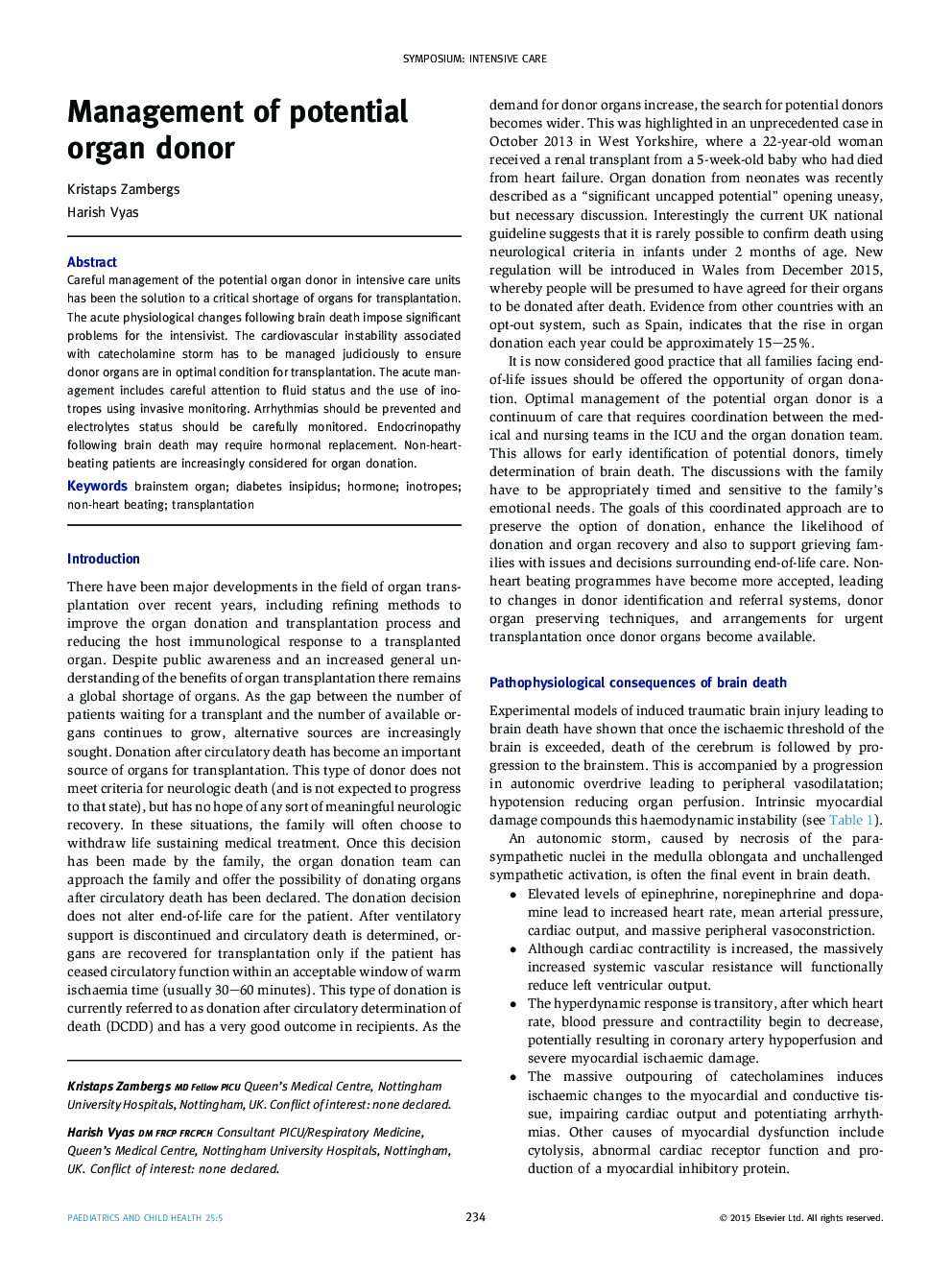| Article ID | Journal | Published Year | Pages | File Type |
|---|---|---|---|---|
| 4171991 | Paediatrics and Child Health | 2015 | 5 Pages |
Careful management of the potential organ donor in intensive care units has been the solution to a critical shortage of organs for transplantation. The acute physiological changes following brain death impose significant problems for the intensivist. The cardiovascular instability associated with catecholamine storm has to be managed judiciously to ensure donor organs are in optimal condition for transplantation. The acute management includes careful attention to fluid status and the use of inotropes using invasive monitoring. Arrhythmias should be prevented and electrolytes status should be carefully monitored. Endocrinopathy following brain death may require hormonal replacement. Non-heart-beating patients are increasingly considered for organ donation.
